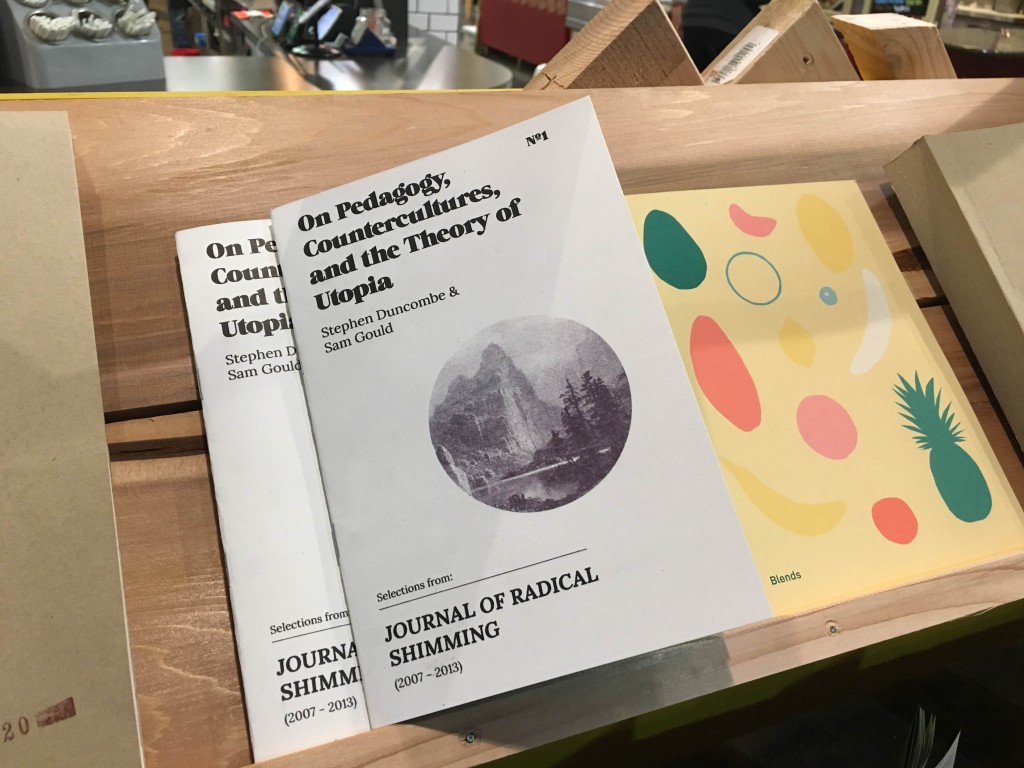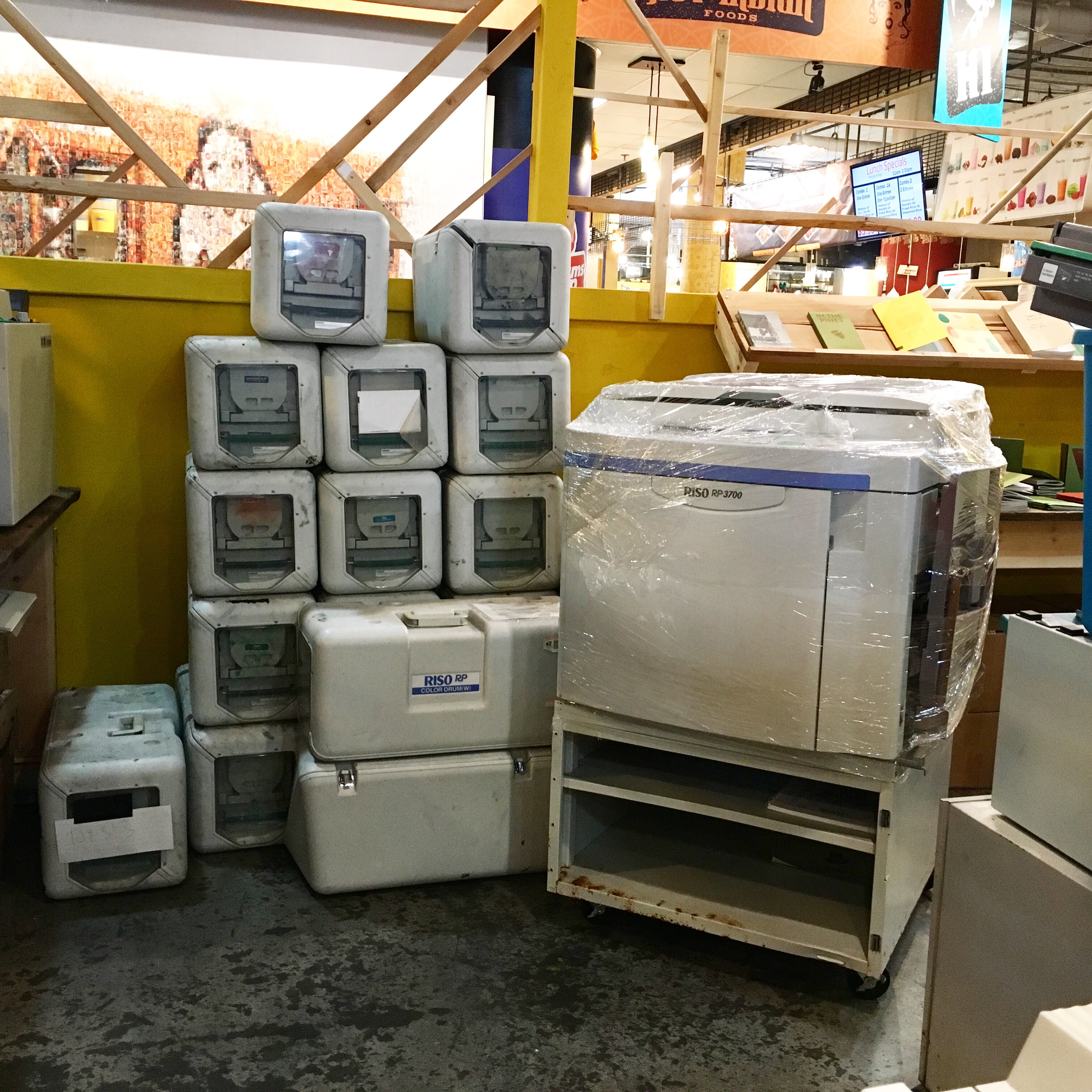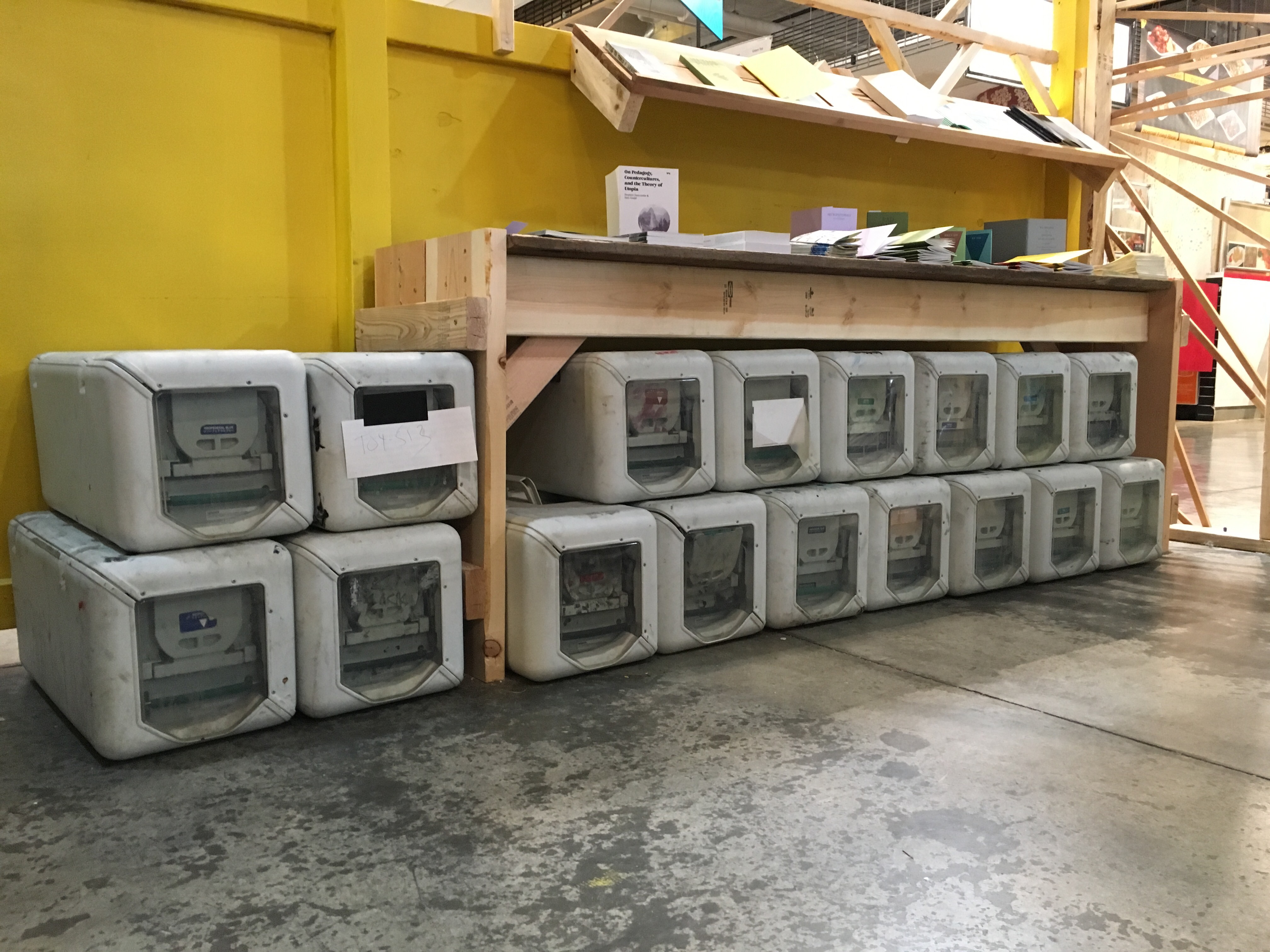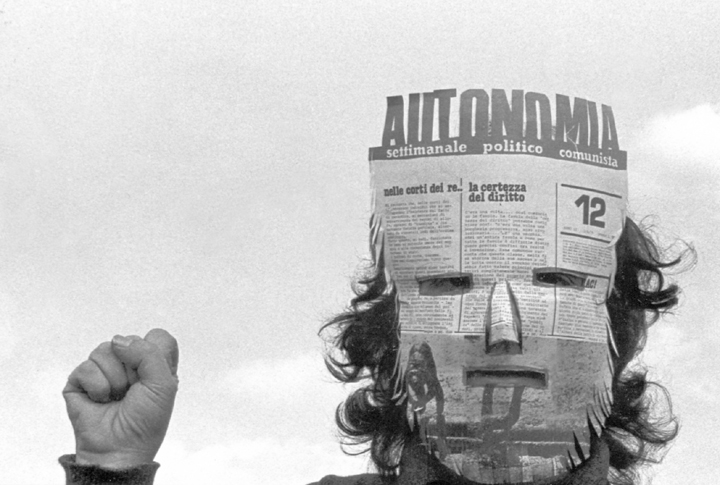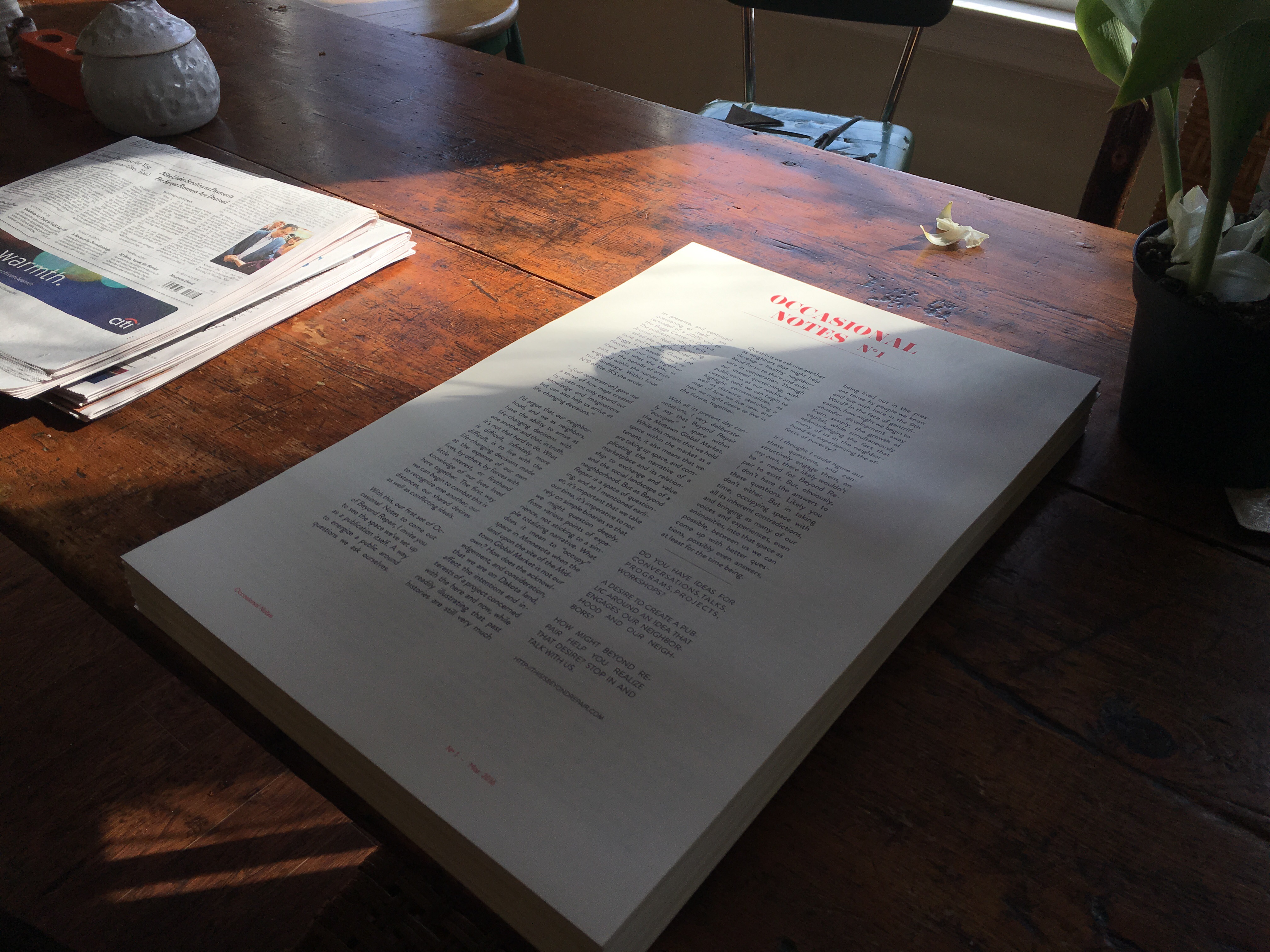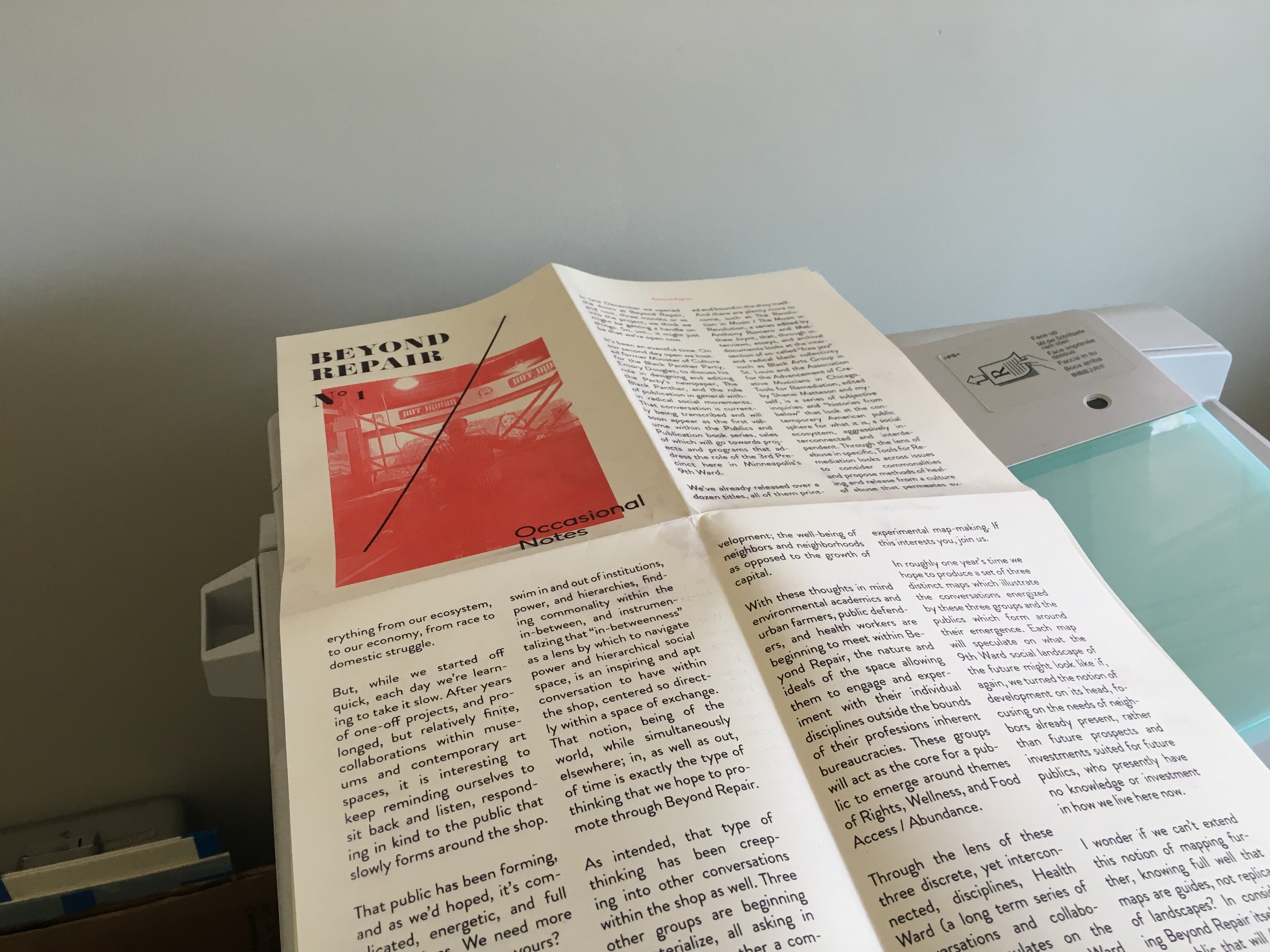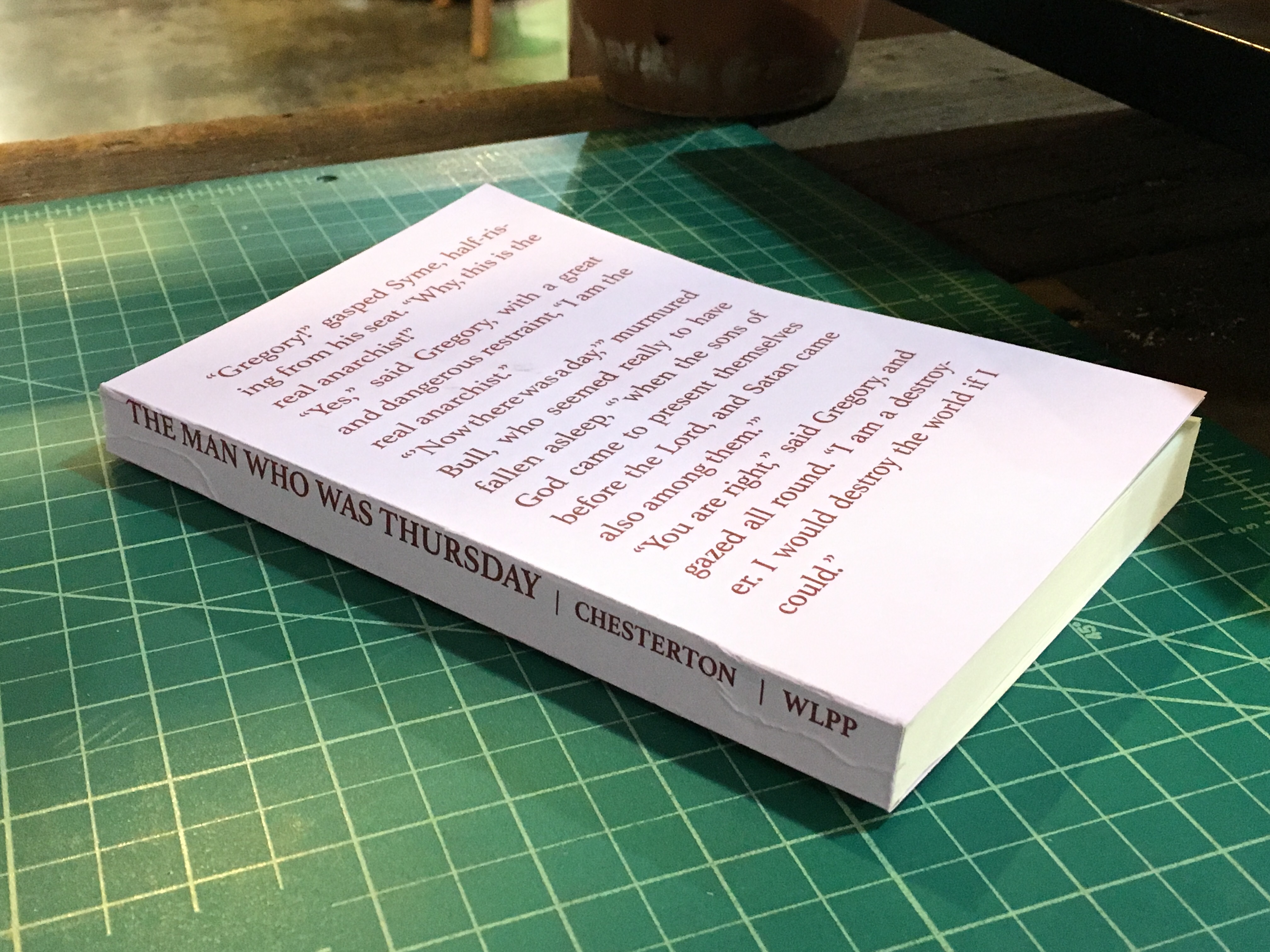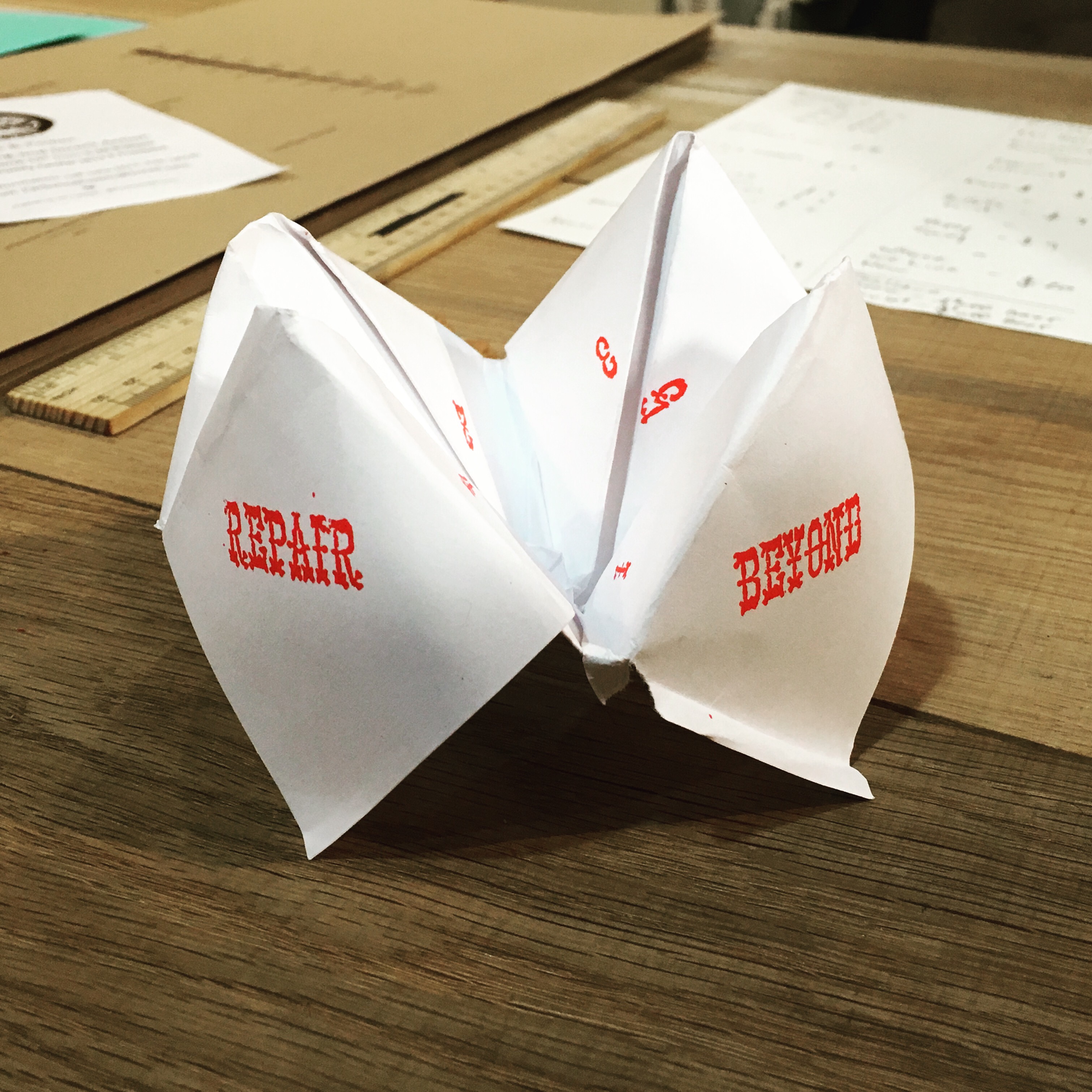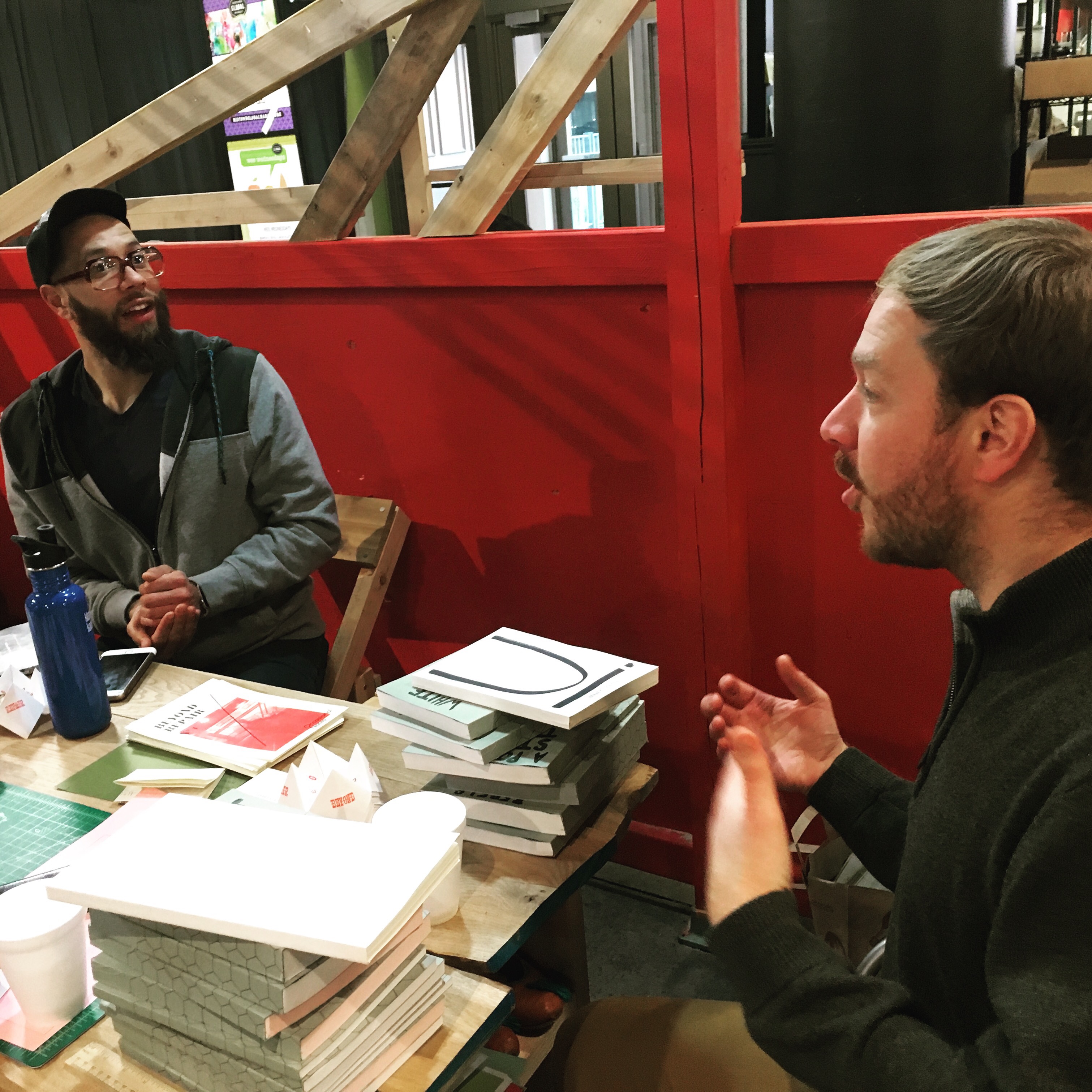
Look at the deep shit these motherfuckers might discover in the midst of the Undercommons Reading Group. I believe Chris is talking about Biggie at this point.
Notebook
Fri, May. 6, 2016 ⁄ 5:00–7:00pm
Walter Benjamin: The Sonnets
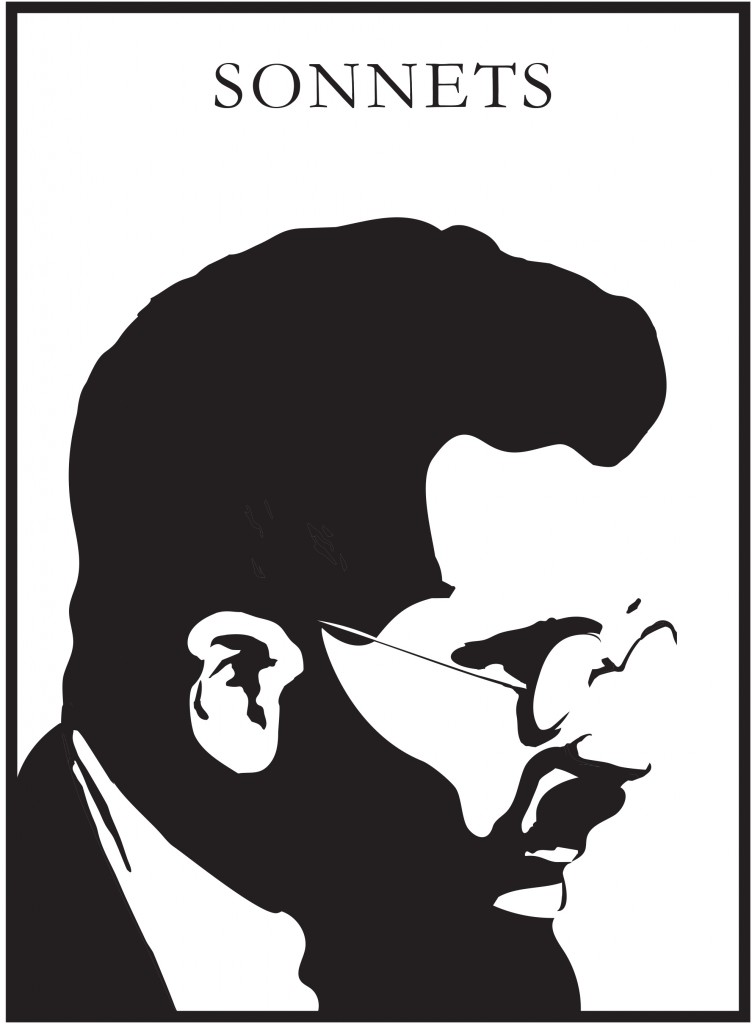
Publication Studio – Troy and Translator Carl Skoggard visit Minneapolis with a book of little-known sonnets by German philosopher and culture theorist Walter Benjamin. Together we will hear these challenging but beautiful “sonnets of mourning” read aloud in their original language, and then again in Skoggard’s superb English translations. This is the first time Benjamin’s 73 sonnets—the most significant literary pursuit of his young adult life, written mostly during and just after World War I—have been available to readers of English. Come and enjoy the under-appreciated poetry of a singularly influential European modernist thinker, brought over into our weird New World tongue! Carl will happily engage in open conversation following the reading and fresh books will be available for purchase.
Carl Skoggard was trained as a musicologist and for many years served as an editor for the music bibliography Repértoire International de la Littérature Musicale (RILM), New York, where he was responsible for German materials. More recently he was also the staff writer for Nest: A Quarterly of Interiors, an award-winning magazine created by his partner Joseph Holtzman.
Over the last decade Skoggard has prepared translations with extensive commentary for the three major autobiographically-oriented writings of the German-Jewish philosopher and cultural theorist Walter Benjamin. His bilingual edition of Benjamin’s Sonnets has made this little-known but important body of poetry available to readers of English for the first time.
People come in and ask, “So where am I?” And you tell them what’s what. And then you talk more, and get to know one another’s joys and ideals and worries. And then they pause, and say sorry, ask if it’s okay to put their hand on your shoulder and they begin to cry, telling you how scared and worried they are for their family in Turkey. You hug and they thank you for that moment of release and you say, “I’ve been there too.”
That’s one out of many reasons why Beyond Repair wants to be here.

Sat, Mar. 12, 2016 ⁄ 2:00–4:00pm
When I Got Woke: Open Story Sharing of Political Awakenings and their Aftermaths
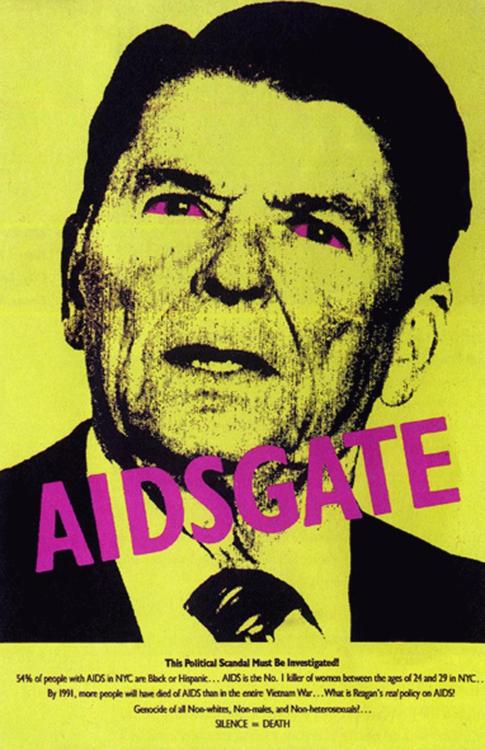
“It may be hard for your viewers to remember how difficult it was for people to talk about HIV/Aids in the 1980s,” Mrs Clinton said. “And because of both President and Mrs Reagan – in particular Mrs Reagan – we started a national conversation.”
Hillary Clinton’s comments at the funereal of Nancy Reagan on March 11 – that the Reagan’s and the Reagan White House helped “start a national conversation” about HIV / AIDS has been deeply disturbing to many, many people.
Hillary Clinton: The Reagans, particularly Nancy, helped start “a national conversation” about HIV and AIDS. https://t.co/7sZp8X53fb
— MSNBC (@MSNBC) March 11, 2016
For those in their late 30s and 40s, the “AIDS Crisis” served as a political awakening, and part of the narrative of that awakening was the utter disregard and callousness of the Reagan White House, and the Reagan’s in particular, in the face of a plague which was killing thousands every year of the Reagan presidency.
These moments, whether the AIDS Crisis, the invasion of Iraq, or the 2014 uprising in Ferguson, MO. act as energetic touchstones in our political awakenings. They are moments wherein we realize that we are experiencing a power stronger than ourselves. And furthermore that we cannot from that point on stay silent. To do so would be to acquiesce to the unthinkable.
Gather at Beyond Repair for a free-form, group conversation wherein we will share our stories of political awakening and how those moments have subsequently shaped our lives and guide our futures.
“My shift is that I take it the present is prologue, not the past. The instant, therefore, is its own interpretation, as a dream is, and any action – a poem, for example. Down with causation . . . And yrself: you, as the only reader and mover of the instant. You, the cause. No drag allowed, on either. Get on with it.”
– from The Present is Prologue, by Charles Olson
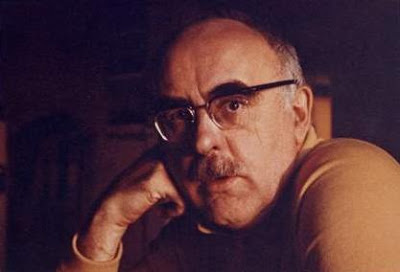
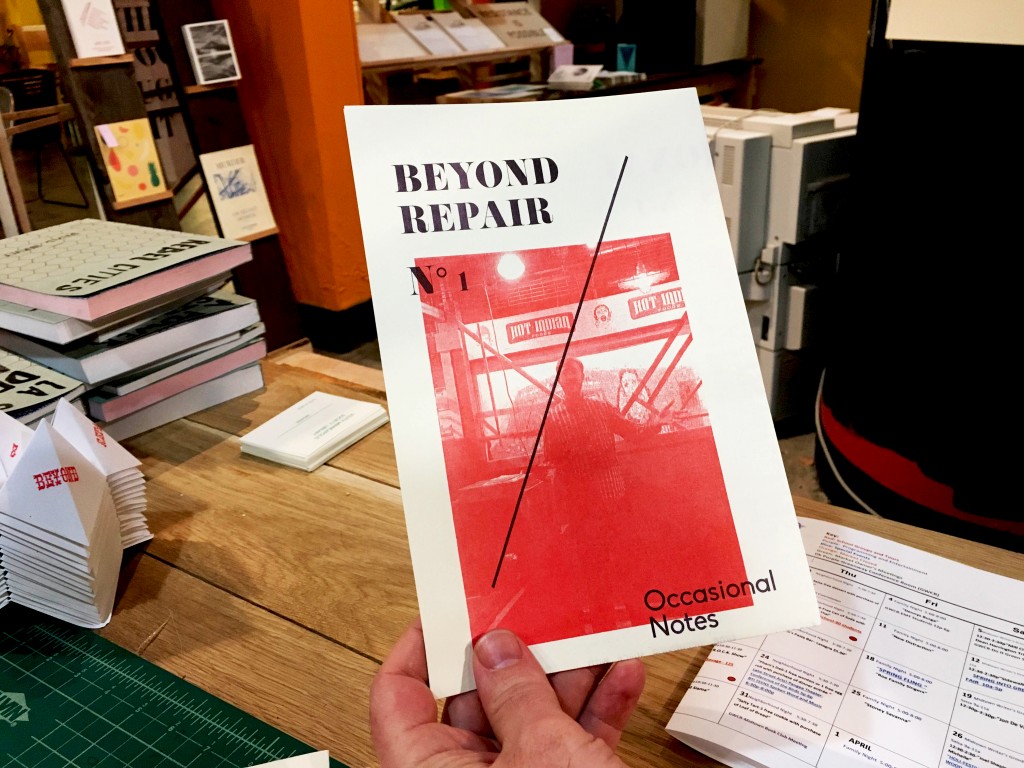
As a way to move more complex reflections around the neighborhood, both on and offline, we’ll be producing a series of broadsheets, intermittently produced, that reflect both our own experiences facilitating the space and assisting the ideas and interests of those who step into it, as well as making light of urgent ideas and actions within the neighborhood on a whole.
Free, as it should be – these are communiques after all – Occasional Notes Nº1 is currently available within the shop to take, read, and distribute as you wish, dropped off throughout the neighborhood, and posted here on the site, to read on whatever device you are currently tuned into. Enjoy.
Now playing…
A note on neighborhoods, neighbors, value, and power.
“Rather than struggle within the context that has been created for you, you can create your own context.” – from A Brief History of Italian Autonomia by Sylvere Lotringer
The other day I ran into two neighbors who live on our block, which is just up the road from Beyond Repair. With each, independent of one another, a spontaneous conversation began around needs for our block and for the neighborhood in general. The first conversation was in regard to cars going up and down our street and the safety of the many kids who live and play up and down the block, my own three kids included.
While we live on a street that, a few blocks down, is a dead-end, cars still seem to turn on to the block and accelerate quickly as they go. My neighbor and I were both worried about kids running out to cross the street and getting hit. I was immediately reminded of City Repair, a group back in Portland that, while I really couldn’t handle their day-glow colors and cob house aesthetics, did remarkable work to engage neighbors and specific concerns within neighborhoods. One project, in particular, came to mind. I believe it was, simply, called Intersection Repair. A group of neighbors from the surrounding intersection would work together and come up with a design to paint the intersection which they wanted more people to pay attention to. The idea being that, with bright colors, and displays on each corner, drivers would be more aware of their surroundings.
I told my neighbor about this project, and offered up the idea that we should do it too. But, rather than asking for permission, or looking for support for paint, etc, we should just talk to people up and down the block who we thought would be into it and have at it.
Not long after, another neighbor passed. He was going to a meeting of the MPLS Parks Board to highlight, among other things, the need for a soccer field in Powderhorn Park, just a block away from our homes. The lower ballfields in the park are not well cared after, and while there is a huge swath of land between the parameter, they are outfitted for two baseball fields alone. While the ball field is used, it isn’t in its entirety. Most of the time a large amount of the field in full isn’t being used. Lots of people play soccer on the field at Powderhorn. Many of these folks are Latino / Latina and Somali-American. But the fields are not really intended for soccer and are suited, more appropriately, for pick-up games.
The MPLS Parks Board, like many around the country, greatly underfunds parks within less affluent neighborhoods. Often it is the case that these are also neighborhoods wherein people of color represent a large portion of the residents. Obviously this comes as no surprise.
My neighbor and I talked about the need for a soccer field being included within the park, but also the bigger picture, that the Parks Board needs to be responsive to the neighborhood, and not simply the most affluent and / or loudest among us. If there’s need and desire, get it done. And yet, time and again, it doesn’t.
Certainly one could make the case that work of this nature doesn’t get done because not enough people come out and support it. There’s some merit to that, but not enough. Money speaks for money.
So, in thinking through these two conversations with my neighbors yesterday, I couldn’t help but keep coming back to the work of the Autonomia movement and their “Autoreductions,” collective and cooperative “readjustments” of municipal decisions, often those that proved to be a poor tax, or programs that greatly disadvantaged the marginalized.
The quote above at the beginning of this note, by Lotringer, is a distillation of Antonio Negri’s ideas on value, a way outside of labor in the market-sense, to locate value in our individual and shared efforts. We all know, whether its working in a job, or working within the electorate, that more often than not the end results often feel far less valuable than the effort exerted. What methods of engagement, between ourselves, might shift this paradigm and change our relationship to value, at the very least, amongst one another, the ones we truly should count on most for care, protection, survival?
When it comes to systems of power, why do we so often accept the existing hierarchy as – if not just, fair, or impartial – the only reality available? The only acceptable measurement by which we can assess and equate value and effort? Can we redefine work and value between us? If, for instance, the Parks Board doesn’t allocate funding for a soccer field does that mean no soccer field? Why? There are dozens of people in the neighborhood who would put in the labor and time to re-adjust the field as is to make it more conducive for soccer playing. And while, granted, the result would likely be a little scrappy, it would be the neighborhood’s, both in effort and in spirit. It would continue to be cared for, unlike the field in its present state, because those neighbors who helped see it into existence would feel responsible for it as their own. It would gain value. The type of value we, all too often and for too long, have little to no understanding of.
A young woman and her friends just came into the shop. She looked around for a moment and asked, “Can you tell me more about what this is?” I began to explain how we make all of the printed matter within the shop, and that we use the space for people within the neighborhood to ask questions of one another, and to use publication as a way to move those relationships out back into the neighborhood. She said, “So then the space, it’s like a publication too. A way to bring different ideas together into one space and share them with people.”
Eureka! I love it when people just Get It!
